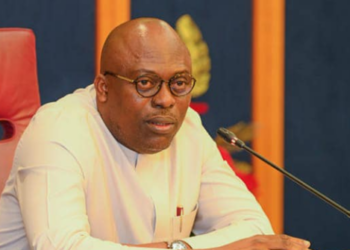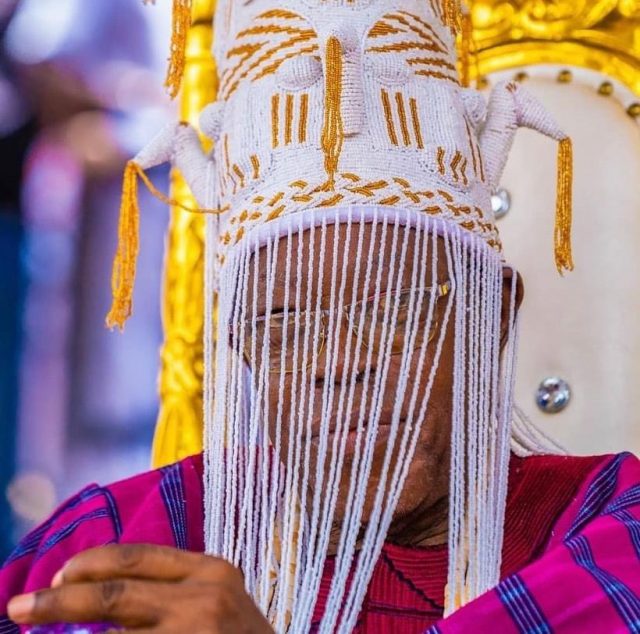A documentary titled, “Nine Years: Life after the Chibok Abduction” has revealed that about 37 parents have died in Chibok largely because of trauma caused by the abduction of their children by the Boko haram terrorists.
The documentary which was produced by Women Radio 91.7 featured an abductee, parents and siblings of some of the abducted girls who lamented the inconsistency of the government in reaching out to them.
Recall that on the 14th April 2014, 276 girls were abducted from Chibok by Boko haram terrorist and 9 years after Women Radio visited Borno state and spoke to a survivor, parents and siblings of the girls.
The documentary was screened in Abuja with panel discussions held to remind the government on the need to rescue the remaining girls and other girls captured across the country by terrorists.
Alamson, one of the siblings who was flown in from Borno state was inconsolable with tears and narrated their ordeal.
“They are being kept in the camp doing nothing, they are not being engaged in any vocational training or formal education and we keep appealing to the government to give us an update on what is to be done for the girls,” Alamson said.
The panellists called on President Muhammadu Buhari to use the federal government might to bring the girls back.
Executive Director of Invictus Africa, Bukky Shonibare, urged the media to leverage their visibility around the nine-point agenda of Bring Back Our Girls (BBOG) movement in demanding accountability from the government.
Shonibare urged the media to “beam the spotlight on the funds allocated for the families and how they should be expended and the need for continuity on the Safe School Initiative.”
Similarly, the Chief Executive Officer (CEO) Connected Development (CODE), Hamzat Lawal, urged members of the media not to abandon but continue to give regular reportage of the abducted girls.
“As a society, the media sets the tone for governance and continuity of engagement. I believe this is an opportunity with the ongoing transition and important that we use this to set an agenda for the incoming government on security,” she said.
Also speaking, the Executive Director of Leah Sharibu Foundation, Dr Gloria Puldu, decried the communication gap between the government and the parents of Leah Sharibu as they have been left without any words from the government since 2020.
Puldu commended the Nigerian media for their reportage and urged them to step up efforts to amplify the demands of Nigerians on this case.
Murtala Abdullahi, a journalist spoke on the need for the media to probe the Chibok Budget Allocation of over 1 billion naira between 2017 and 2022 for accountability and transparency.
The Buhari-led administration was reminded of its promises to bring back the girls by Adaora Sydney-Jack, Executive Director Gender Strategy Advancement International and a journalist as the administration prepares to leave while urging the incoming Tinubu/Shettima administration to ensure that more efforts are geared towards the release of the remaining girls.
Ene Ede, a gender activist said psychosocial support and rehabilitation for the girls and their relatives are key.
Friya Bulus, Director of Gender Affairs, Federal Ministry of Women Affairs noted that the ministry had been liaising with different stakeholders in the rehabilitation and education of the rescued girls.
Esther Alaribe, head of programmes Women Radio who moderated the conversation, charged media platforms to commit to a weekly reportage of the status of the Chibok Girls and their families and to also work with security agencies to intensify efforts in facilitating the safe release of all the remaining girls still in captivity.
Meanwhile, the co-founder Women Radio 91.7 Toun Okewale Sonaiya and executive producer of the documentary, pointed out the need for the media to intentionally report these cases and keep the conversation going.
Okewale Sonaiya said, “We should not wait till commemorative dates before referencing the remaining Chibok Girls and the only Dapchi girl still in captivity Leah Sharibu. We should keep the issue of the girls in incarceration on the front burner as constant reminders to the government to work harder in recovering our girls who are now women because their parents and Nigerians need closure”.
The panellists committed to following the status of the approved funds, tracking data on the girls for proper documentation and promised to follow updates on the girls.
They also called on the President-elect Asiwaju Bola Ahmed Tinubu and his vice Kashim Shettima to intensify efforts in the rescue of the Chibok girls.




